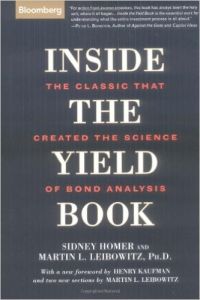
Inside the Yield Book
The Classic that Created the Science of Bond Analysis
Recommendation
Sidney Homer and Martin L. Leibowitz, the authors of this slim volume, accomplish a tough feat. They utter a piece of rudimentary financial advice in one sentence and then launch into mind-bending explanations of the calculus that makes the rudiments true. Maybe that’s why their 1972 classic has been in print for three decades. This updated version of the classic includes new forewords and some material that was cut from the original. Unless you’re an experienced bond trader or a finance whiz, this primer isn’t exactly easy reading. The authors waste little time on hand-holding. Still, it remains a complete look at its topic after all these years. getAbstract suggests this book to investors and traders who need a crash course – or a refresher course – in bond analysis.
Summary
About the Authors
Martin L. Leibowitz worked at Salomon Brothers & Hutzler when Inside the Yield Book was first published in 1972, and had a long career there. He holds a doctorate in mathematics and is also the author of Franchise Value and the Price/Earnings Ratio, Return Targets and Shortfall Risk: Studies in Strategic Asset Allocation and A New Perspective on Asset Allocation among other books. In 1995, he joined TIAA-CREF as chief investment officer. Sidney Homer was a long-time bond manager at Scudder, Stevens and Clark and joined Salomon in 1960 as director of bond market research. Homer was also the author of A History of Interest Rates and Price of Money: 1946 to 1969, among other books. He died in 1983 at age 80.









Comment on this summary